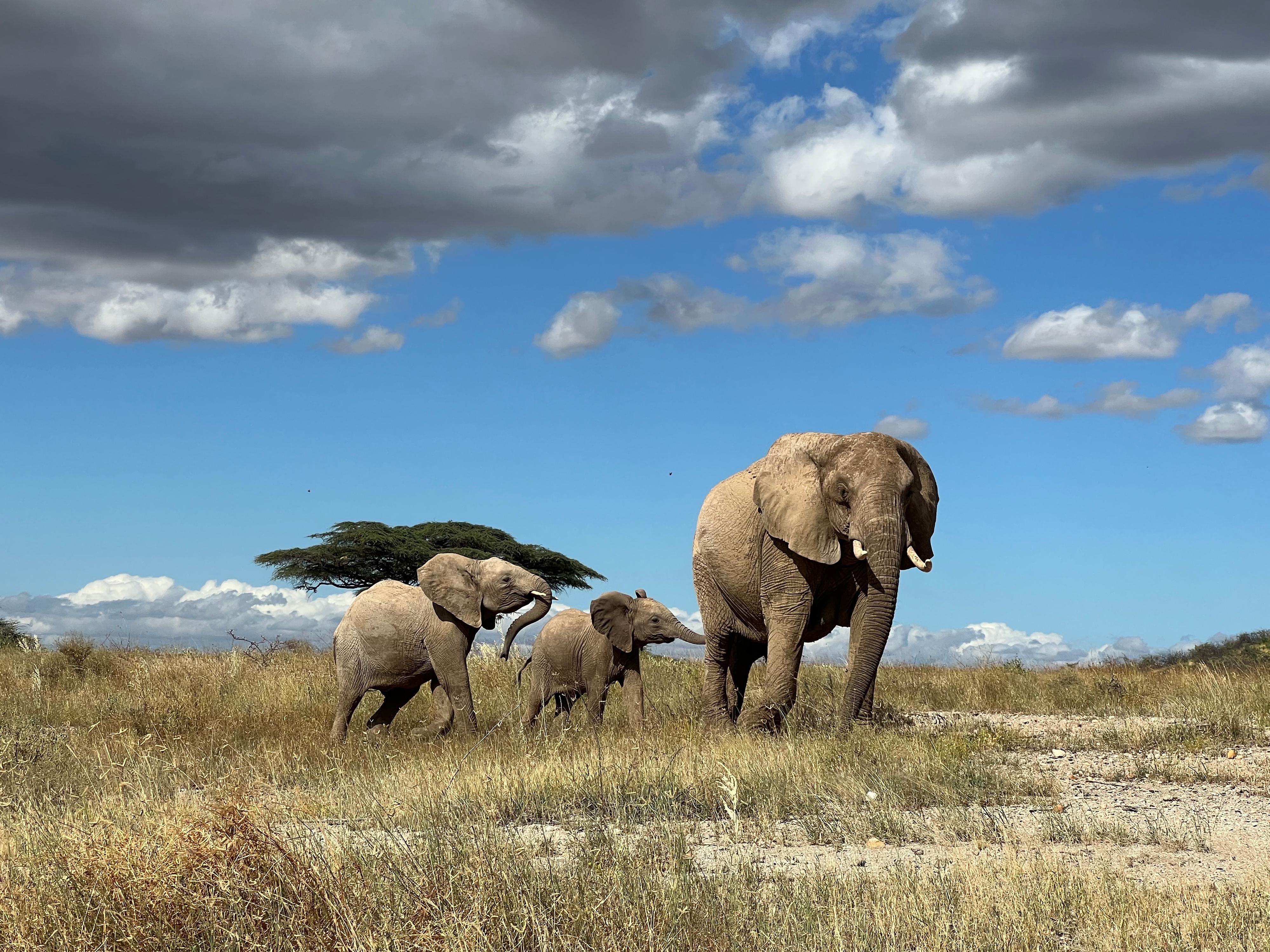Names are universal throughout human cultures and across different languages. They form a huge part of our identity and help us communicate with each other, but personal names are considered a uniquely human thing. Now, new research has suggested that wild African elephants could address each other with individual specific calls – the equivalent of a name – with fascinating implications for the evolution of language.
The new research analyzed calls from wild elephants in two areas of Kenya: the greater Samburu ecosystem to the north, and the Amboseli National Park to the south. The final dataset contained around 470 separate elephant calls. There were 101 unique callers and 117 unique receivers. The researchers only included calls directed at a single individual elephant, and for which the receiver could be identified.
The team measured the acoustic features of the elephant sounds and ran a series of statistical tests on the data, to see if it was possible to predict the identity of the receiver from the call. And indeed, this was found to be the case, as the team writes: “[R]eceivers of calls could be correctly identified from call structure statistically significantly better than chance.”
One aspect the team were particularly interested in was whether the calls mimicked the receiver’s own vocalizations. This has been observed in other species, such as dolphins, which can learn each other’s individual vocal labels and respond to their own label when they hear it.
What was fascinating about the elephant data, though, was that the authors found limited evidence that the callers were imitating each receiver’s own call.
“Our finding that elephants are not simply mimicking the sound associated with the individual they are calling was the most intriguing,” said study author Kurt Fristrup in a statement seen by IFLScience. “The capacity to utilize arbitrary sonic labels for other individuals suggests that other kinds of labels or descriptors may exist in elephant calls.”

Elephants have complex social networks, from family groups to the wider clan.
Image credit: George Wittemyer
The authors also took 17 of the elephants and played them recordings of calls that were originally addressed to them to see how they responded. “Further supporting the existence of vocal labels,” the authors write, “subjects approached the speaker more quickly [and] vocalized more quickly […] in response to test playbacks than control playbacks.”
Thankfully, it’s unlikely the elephants were troubled by these prank calls, as first author Michael Pardo said: “They were probably temporarily confused by the playback but eventually just dismissed it as a strange event and went on with their lives.”
Overall, the authors concluded that this could well be the first evidence of a non-human species using a human-like naming system to refer to other individuals. As to why this might arise in elephants specifically, there are some clues we can glean from their social structures.
“[D]ue to their fission-fusion social dynamics [elephants] are often separated from their closely bonded social partners,” the authors explain, referring to elephants’ tendency to split themselves up into smaller parties that can then aggregate together to form large groups, sometimes hundreds-strong.
“[V]ocal labels probably allow elephants to attract the attention of a specific distant receiver,” the authors continue, also noting that the labels only cropped up in a minority of vocalizations, likely because in many contexts there is no need to use them.
There’s also a cuddlier aspect to all this: calling each other by their names could be a way of enhancing social bonding, the authors posit, as is the case with humans. The authors note that the “findings raise intriguing questions about the complexity of elephant social cognition,” and thus open up a fascinating new avenue for researchers to explore.
Sadly, that likely won’t extend to us being able to have a chat with an elephant, much as we might want to.
“It’s tough to live with elephants, when you’re trying to share a landscape and they’re eating crops,” said senior author George Wittemyer. “I’d like to be able to warn them, ‘Do not come here. You’re going to be killed if you come here.'”
The study is published in Nature Ecology & Evolution.
An earlier version of this article was published in September 2023.
Source Link: African Elephants Call Each Other By "Names", Just Like Humans Do